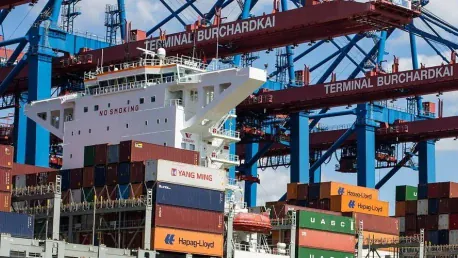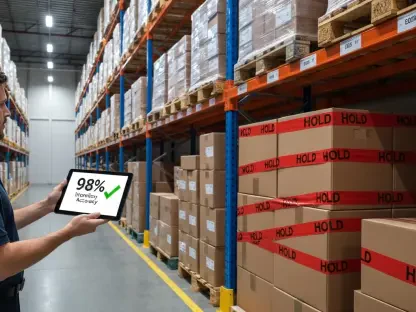In a significant move that underscores its commitment to bolstering global trade, Danish shipping giant Maersk has announced a $250 million investment to develop the largest single-site logistics and services facility in the Middle East at Saudi Arabia’s Jeddah Islamic Port. This ambitious project aligns seamlessly with Riyadh’s Vision 2030 strategy, which aims to diversify the Saudi economy and transform the country into a pivotal transportation hub. The new facility will cover an expansive area of 225,000 square meters and will offer comprehensive logistics solutions, including warehousing for various sectors, first- and last-mile delivery options, and much more. This move by Maersk not only cements its foothold in the strategically crucial region but also reflects a broader trend of global companies keen on capitalizing on Saudi Arabia’s liberalized investment laws and strategic location. The timing of this investment is particularly notable as it comes amidst ongoing threats to Red Sea shipping routes from Yemen’s Houthi militants, who have been targeting vessels since October 2023, forcing companies, including Maersk, to consider more secure yet longer routes such as the Cape of Good Hope, affecting global trade dynamics.
Aligning with Vision 2030
Maersk’s investment is a testament to Saudi Arabia’s ambitious Vision 2030 strategy, which seeks to reduce dependence on oil revenue and transform its economy into a diversified and sustainable entity. By establishing a state-of-the-art logistics hub in Jeddah Islamic Port, Maersk is contributing to the kingdom’s goals of becoming a major player in global transportation and logistics. The facility will enhance efficiency in supply chain management by providing top-notch warehousing solutions for multiple sectors, including retail, manufacturing, and pharmaceuticals. Additionally, the facility will offer first- and last-mile delivery services, which are critical for the seamless movement of goods in and out of the region. This focus on logistics and transportation infrastructure is essential for Saudi Arabia as it eyes a greater role in international trade, a move supported by recent regulatory reforms aimed at creating an equitable investment landscape for both local and international investors.
Beyond the immediate benefits to Saudi Arabia’s economy, the new logistics hub underscores a broader regional ambition to fortify transportation networks. This ambition is reflected in neighboring countries like Oman, which have also launched similar infrastructure projects. The consensus among global investors highlights the potential of Saudi Arabia’s non-oil sectors, especially in logistics and supply chain management. Recent policy changes have made it easier for international companies to operate in the kingdom, offering them a level playing field with local businesses. The alignment of Maersk’s investment with Vision 2030 is a strategic move that not only enhances its own operational capabilities but also contributes significantly to Saudi Arabia’s economic diversification efforts. This synergy between business interests and national economic goals is a compelling example of how targeted investments can drive transformative change.
Navigating Geopolitical Challenges
Danish shipping giant Maersk has made a landmark $250 million investment to establish the largest single-site logistics and services facility in the Middle East, located at Saudi Arabia’s Jeddah Islamic Port. This project is directly aligned with Riyadh’s Vision 2030 strategy, which seeks to diversify the Saudi economy and make the country a key transportation hub. Spanning 225,000 square meters, the new facility will offer extensive logistics solutions, including warehousing for various sectors and first- and last-mile delivery options.
This strategic move not only strengthens Maersk’s presence in this crucial region but also highlights a broader trend where global companies are eager to take advantage of Saudi Arabia’s liberalized investment laws and its strategic location. The timing of this investment is particularly significant, occurring amidst ongoing threats to Red Sea shipping routes from Yemen’s Houthi militants. These threats have forced companies, including Maersk, to consider longer but safer routes like the Cape of Good Hope, impacting global trade dynamics.









